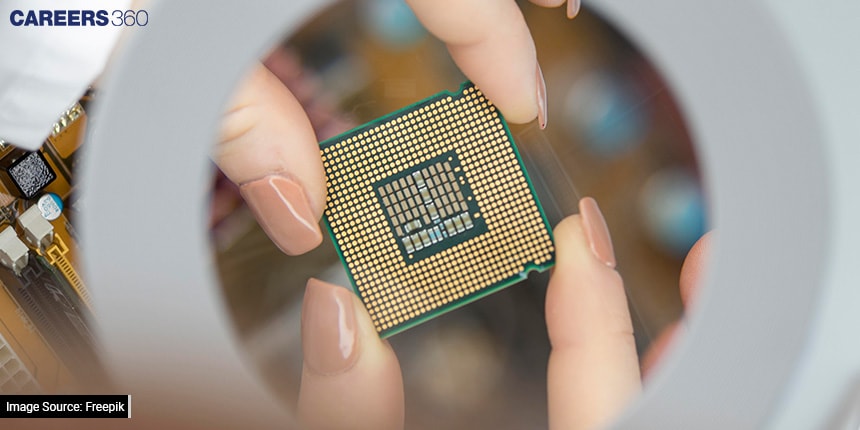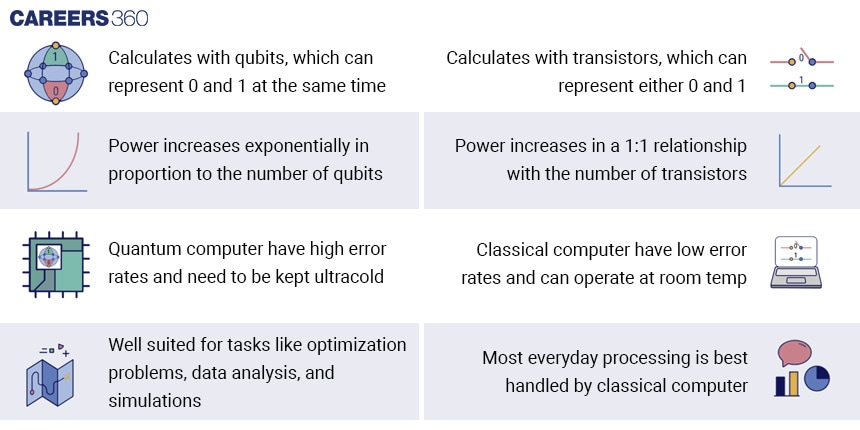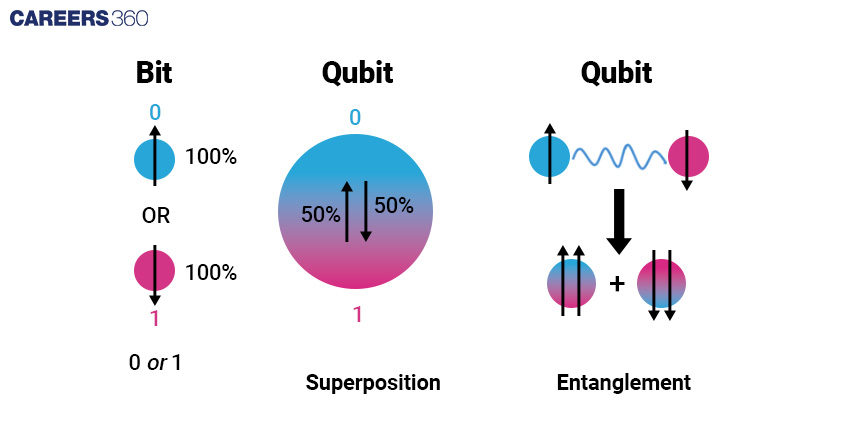Quantum Computing: Unlock The Mysteries Of Science And Mathematics
Quantum computing is an emerging technology that has the potential to revolutionise many aspects of science, technology, and society as a whole. Unlike classical computing, which operates on binary digits (bits), quantum computing uses quantum bits (qubits) to perform calculations. These qubits can exist in multiple states simultaneously, allowing quantum computers to perform certain calculations much faster than classical computers.

However, the principles underlying quantum computing are complex and difficult to grasp for those without a strong background in mathematics and physics. To truly understand quantum computing and its potential applications, it is necessary to have a solid foundation in quantum mechanics, linear algebra, and probability theory.
Quantum computing is an emerging technology that has the potential to revolutionise various fields, and understanding it can help Class 12 students develop a deeper understanding of quantum mechanics, which is covered in multiple chapters of the NCERT syllabus in both Class 11 and 12. This understanding can be useful not only for board exams but also for future career opportunities in fields like quantum computing research, software development, and cybersecurity. Therefore, it is essential for students to learn about quantum computing.
Here in this article, we will provide an introduction to quantum computing, its underlying principles, and its potential applications. We will explore the mysteries of science and mathematics that make quantum computing possible.
What Is Quantum Computing?
Quantum mechanics is a branch of physics that deals with the behaviour of matter and energy on the atomic and subatomic levels. In classical mechanics, particles have a definite position and momentum at any given time, and their behaviour can be predicted with a high degree of accuracy. However, in the quantum world, particles do not have a definite position or momentum. Instead, they exist in a state of superposition, where they can be in multiple positions or momenta simultaneously.
Superposition
This concept of superposition is fundamental to quantum computing. In a classical computer, a bit can only exist in one of two states, 0 or 1. In contrast, a qubit can exist in a superposition of states, which allows quantum computers to perform multiple calculations simultaneously. This gives quantum computers a tremendous advantage over classical computers, especially for certain types of calculations, such as factorization and optimization.
Entanglement
An important principle in quantum mechanics is entanglement. Entanglement occurs when two particles become correlated in such a way that the state of one particle is dependent on the state of the other, even if they are separated by a great distance. This property allows quantum computers to perform certain calculations faster than classical computers, such as searching through large amounts of data. For more information, refer to the above infographic.
Also check - Mastering Maths: Tips For Excelling Your Class 11 Curriculum
Quantum Computing Vs Classical Computing
Quantum computing and classical computing are two fundamentally different paradigms of computation. Classical computers process information using bits, which can either be a 0 or a 1. Quantum computers, on the other hand, use quantum bits or qubits, which can exist in multiple states simultaneously. This allows quantum computers to perform certain calculations exponentially faster than classical computers. For further information, refer to the infographics.

Mysteries Of Science And Mathematics
Quantum computing is not without its challenges. One of the biggest challenges is maintaining the coherence of the qubits. The slightest interference from the environment can cause the qubits to lose their superposition, resulting in errors in the computation. Therefore, quantum computers must be kept in a highly controlled environment with very low levels of noise.
Despite the challenges, the potential applications of quantum computing are vast. One of the most promising applications is in the field of cryptography. Quantum computers have the potential to break many of the commonly used cryptographic algorithms, which could have serious implications for cybersecurity. However, quantum computers can also be used to develop new cryptographic techniques that are secure against quantum attacks.
Another potential application of quantum computing is in the field of drug discovery. Quantum computers can be used to simulate the behaviour of molecules, which could greatly accelerate the process of drug discovery. Similarly, quantum computing could be used to optimise complex systems, such as transportation networks or financial portfolios.
Also check - Breakfast Of Champions Is Not Cereal Or Canned Juice
Applications for Admissions are open.
As per latest syllabus. Physics formulas, equations, & laws of class 11 & 12th chapters
JEE Main Important Chemistry formulas
Get nowAs per latest syllabus. Chemistry formulas, equations, & laws of class 11 & 12th chapters
JEE Main high scoring chapters and topics
Get nowAs per latest 2024 syllabus. Study 40% syllabus and score upto 100% marks in JEE
JEE Main Important Mathematics Formulas
Get nowAs per latest syllabus. Maths formulas, equations, & theorems of class 11 & 12th chapters

